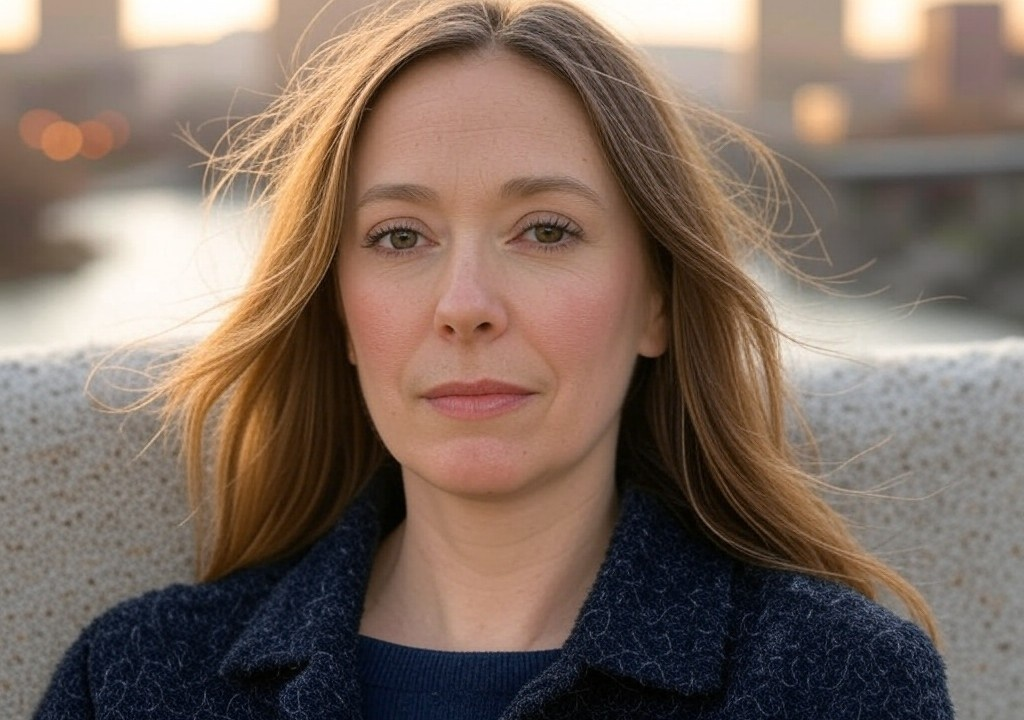Sometimes, love finds you in the most unexpected places. For some, it’s during a stolen glance across a crowded room. For me, it was in a chicken coop.
Picture this: I’m 11 years old, standing ankle-deep in straw on my grandparents’ farm just outside Boise. It’s early fall, my favorite time of year, when the air smells like dirt and cider and possibility. My grandpa hands me a basket and asks me to help gather eggs. The chickens cluck their complaints as I tiptoe into their domain, feeling like a timid guest at someone else’s dinner party. Then it happens—I spot a plump, pristine egg, tucked in the nest with all the grace of a hidden treasure. I pick it up, cradling it like it’s spun glass, and feel… wonder. Do you know how insane it is that a chicken can create something so perfect? Right then and there, something unfurls in me: a deep respect, not just for chickens (though I do have a soft spot for the underappreciated hen), but for where things come from and how they get made.
That moment started a lifelong curiosity about origins—not just of food, but of people, passions, and relationships. How do we become who we are? What shapes the things we care about most? Spoiler alert: It’s rarely one big lightning bolt of discovery. My passion for understanding (and telling) stories didn’t hatch fully formed like that egg—it grew slowly, evolving like a relationship that deepens over time. Here’s how it happened.
Act One: The Art of Asking Questions
It turns out, chickens are a gateway curiosity. After my egg-gathering escapades, I started asking questions about everything: Where does this potato come from, Grandpa? (Fun fact: Fries are a solid 70% Idahoan on a national scale.) Why do people come to Boise instead of moving out? And, most importantly for any tween on the cusp of becoming a full-blown overthinker: Why do people do the things they do?
By high school, this questioning turned into a weirdly charming obsession. I joined the debate team because arguing hypotheticals felt like detective work, searching for motives and proof. I ran for editor of the student newspaper because I wanted to choose stories that mattered (and okay, because I had an inexplicable amount of opinions about font choices). Writing became my lens for making sense of the world, like the notebook version of therapy. Want to decode a complicated situation? Put it into words.
And while some kids dreamed of Hollywood or Wall Street, I secretly dreamed of explaining the intricacies of something mundane-yet-fascinating, like the history of irrigation systems or the socioeconomics of coffee culture. (Look, not every teenager is trying out eyeliner wings and pretending to enjoy Nirvana. Some of us come pre-packaged as professional nerds.)
Act Two: When Curiosity Meets Culture
Fast forward to my early 20s. I had landed a fellowship in Chicago, writing for a glitzy national magazine. For the first time, I wasn’t within view of the Boise foothills or the smell of my parents’ brewery on a Friday night. Chicago overwhelmed me in a way that was both terrifying and exhilarating, like a first date where the chemistry is almost too strong.
But, here’s the thing. Even in the Windy City, where the skyline felt sharp enough to slice the clouds, my roots stuck with me. I realized the stories I most wanted to tell weren’t shock-value exposés or glossy celebrity profiles. I wanted to write about real people—what they cared about and why. I became the journalist who asked too many questions during interviews, ending every conversation with, “Wait, one more thing!”
The more I wrote, the more I saw patterns. Whether it was tech entrepreneurs in Idaho or small business owners in Chicago, everyone lit up when they talked about something they loved. Learning their stories made me think of my grandpa and his endless patience teaching me to plant a garden row “straight enough to impress the neighbors.” It reminded me that at the heart of everything—your work, your relationships, your hobbies—there’s a seed. And when you find the thing that makes you light up? That’s the good stuff.
Act Three: Falling in Love with the Process
By the time I hit my late 20s, I was back in Boise, writing full-time and trying to piece together the puzzle of my passion. Here’s where the romance metaphor kicks into full gear: Loving your passion isn’t like a summer fling; it’s more like a long-term relationship. Sure, there are honeymoon phases (hello, when I first landed my book deal), but also moments where it gets hard to show up (…hello, writer’s block and crippling imposter syndrome).
Here’s what I’ve learned:
- Curiosity is your compass. If something sparks your interest—whether it’s a niche hobby like sourdough baking or a question you can’t stop asking—follow it. Curiosity will lead you somewhere good, even if you seem like the oddball in the room (trust me, I’ve been there).
- Learn to love the mundane. Everyone talks about “passion” like it’s fireworks all the time. The truth? A lot of it is showing up on random Thursday afternoons when it feels boring or like work. That’s where the magic happens—when you keep showing up, regardless.
- Let things evolve. Just like any relationship, your passion will grow with you. What inspired me as a 16-year-old newsroom junkie isn’t the same as what drives me today. And that’s okay. Be flexible with how your passion shows up in your life.
Oh, and here’s a pro tip from the frontlines: You’ll never truly “arrive” at your passion. There’s no single finish line where you throw confetti and say, “Okay, we’re done here!” It’s more like a dance—sometimes thrilling, sometimes awkward, but always worth showing up for.
What My Passion Taught Me About Love
Here’s the plot twist I didn’t see coming: The lessons I’ve learned chasing my passion aren’t so different from the ones I’ve learned about relationships. Falling in love with your work—or another person—isn’t about perfection. It’s about finding joy in the process, making peace with the parts that aren’t perfect, and always staying curious.
Like dating, pursuing a passion requires vulnerability. You have to risk embarrassment, rejection, and the occasional bout of self-doubt. But the people who are happiest in love? They’re the ones willing to show up anyway, trusting that something meaningful will come out of it.
Would I have figured this out without that fateful day collecting eggs in my grandparents’ chicken coop? Maybe. But I like to think that moment planted the seed (pun intended), teaching me early on to look for the beauty and meaning in the everyday.
So, if you’re still waiting to “find your passion”? Relax. It’s not hiding under a rock or written in the stars. It’s already somewhere nearby—maybe tucked inside a moment that seems small and unassuming. You just have to pick up the basket, gather your curiosity, and trust the process.
Because whether we’re talking chickens, careers, or relationships, the same rule applies: Joy isn’t found in arriving at the end. It’s found in the growing, connecting, and loving along the way. Don’t forget to look up and enjoy it.




















